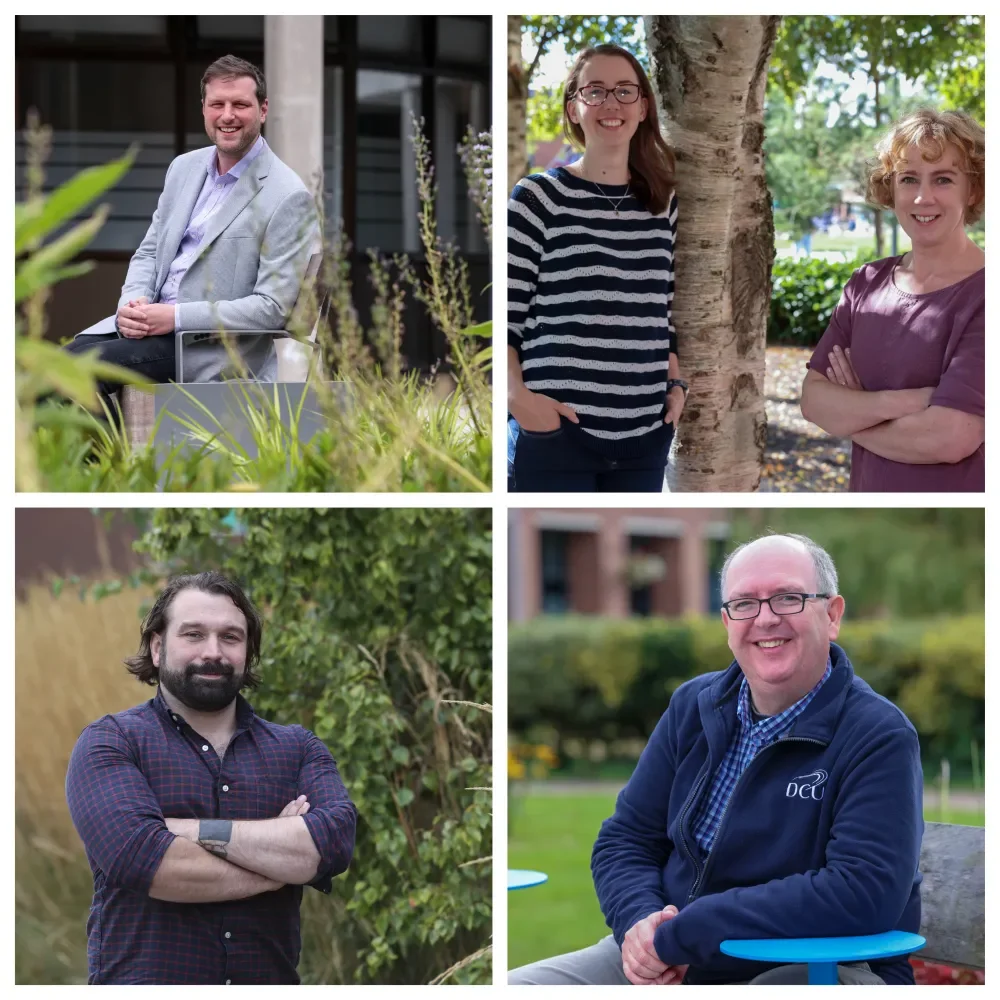

Faculty five reach next stage of SFI National Challenge
The DCU researchers have received funding to compete in the next stage of the SFI Sustainable Communities Challenge and the Future Food Systems Challenge.
Dr Susan Kelleher, along with Professor Enda McGlynn, Dr David O'Connor Dr Jennifer Gaughran and Dr Ruairi Brannigan received funding to go to the next stage of the Sustainable Communities Challenge. The project involves taking old clothing made from fossil fuels and turning it into external insulation for houses.
“Worldwide, there is an enormous amount of end-of-life clothing waste that just ends up either in landfill or being incinerated,” said Dr Kelleher.
“The PUreTex project will recycle these textiles by converting them to insulation for houses,” said Dr Kelleher. “We’ll be working to tackle two major problems, the need to effectively reuse textile waste, and the need for energy efficient homes. It’s a bit like creating a cardigan for your home out of your old jumpers.”
Dr Ruairi Brannigan received funding to the next stage of the SFI Future Food Systems Challenge. The project involves replacing fungicides based on petrochemicals with non-petrochemical-based alternatives.
"Securing funding under an SFI National Challenge Fund scheme signifies more than just financial support; it signifies recognition of the versatility and applicability of polymer chemistry in solving societal challenges, as well as affirming our capabilities in pioneering breakthroughs and innovative pursuits,” said Dr Brannigan.
Dr David O’Connor received funding to go to the next stage of the Future Foods Systems Challenge. The project involves developing a new tool to forecast airborne fungi and bacteria, and reducing crop losses by 20%, through more efficient spraying, as a result.
"AGSENSE will pioneer the development of fungal spore monitoring and forecasting, in turn protecting human health and the agricultural sector alike,” said Dr O’Connor.
“Twenty per cent of crops are lost to blights and other fungal pests every year. For instance, the EU alone loses over 1 billion euro to potato blight annually. We will develop early warning tools which will allow for these pests to be stopped in their tracks before they can do damage."
Professor Enda McGlynn received funding also to go to the next stage of the Future Foods Systems challenge. This project involves the development of nanostructures that will enable a new device to act as a point of care diagnostic test for diseases in fisheries and aquaculture.
“The SFI challenge funding provides us with an exciting opportunity to put our expertise in nanostructure synthesis to use in an important practical application, working with fisheries experts from both academia and industry,” said Prof McGlynn.
The teams will later compete for further funding of €500,000 available to five teams in each of eight challenges. The overall winner in each challenge will get either €1 million or €2 million depending on the challenge to continue the work for a further 24 months.
The Challenges are structured so that professional researchers must engage directly with potential beneficiaries of their inventions and solutions to make sure they are responding to their communities’ needs.
The financing comes from the EU recovery and resilience facility under the National Recovery and Resilience Plan.
The Minister for Further and Higher Education, Research, Innovation and Science, Simon Harris TD, today welcomed the final teams to join the fray in the National Challenge Fund.
“The National Challenge Fund is both a marathon and a sprint for these researchers,” said Minister Harris. “They are committing to solving long-term problems, but they need to develop their ideas quickly and validate their solutions to keep unlocking funding each year.”
“This kind of solutions-driven research will help us to tackle the big societal changes we face as we become a green and digital country, and I am already looking forward to the years ahead as we see the projects advance. I am particularly pleased to see the diversity of researchers – coming from all career stages, and from across the higher education network, as we work to make our professional research community representative of modern Ireland.”
